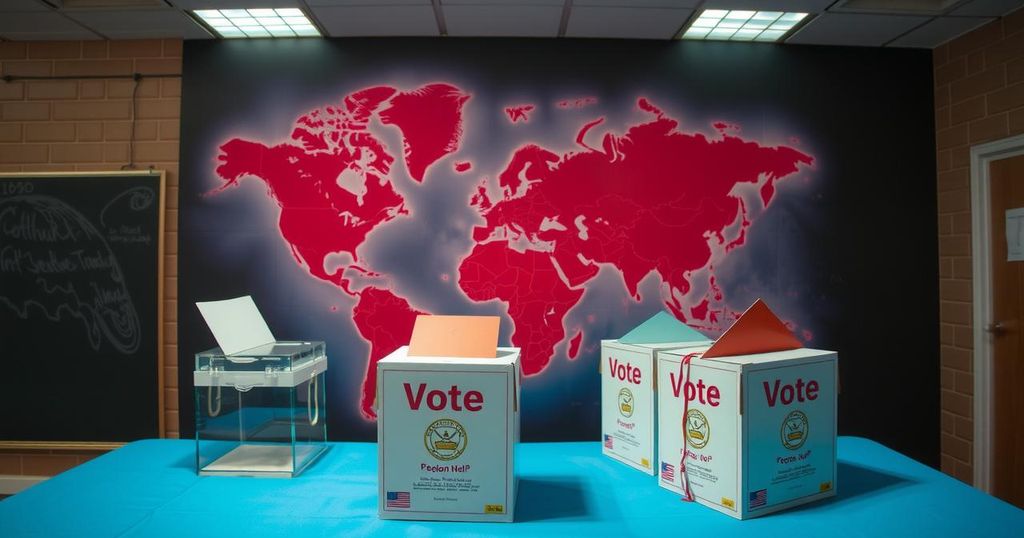Global Elections of 2024: A Year of Voting Amidst Unrest and Change

In 2024, elections engaged nearly half the world’s population amid global unrest and economic challenges. Citizens voted across continents, showcasing both enthusiasm and discontent over the electoral process, with incidents of fraud and protest evident in several countries. Major political shifts occurred, including Donald Trump’s return in the U.S. and Claudia Sheinbaum’s historic election in Mexico, while notable tensions arose in nations like Russia and France, revealing a multifaceted political narrative.
In 2024, global elections occurred in nations home to nearly half of the world’s populace, depicting a vivid tapestry of civic engagement across five continents. Amidst global unrest, from the conflict in Ukraine to crises arising from the COVID-19 pandemic, voters braved various conditions to cast their ballots. Whether under pouring rain or in extreme heat, individuals adorned themselves with national symbols and displayed fervent support for their candidates, emphasizing the universal desire for democratic expression.
However, the electoral process in several regions was marred by allegations of fraud and dissatisfaction among the populace. Observers highlighted concerns over the integrity of elections in Mozambique and discrepancies in vote tallies in Venezuela. Incidents of civil unrest transpired in Algeria and Indonesia, where changes to election laws prompted clashes. In a parallel thread, nationalistic sentiments emerged strongly in France, Romania, and Georgia, leading to public protests following contentious electoral outcomes.
In Russia, President Vladimir Putin’s grip on power was reinforced by a significant electoral victory despite widespread censorship and repression of dissent. Conversely, certain incumbents faced backlash, with the Conservative Party in Britain and Japan’s Liberal Democrats suffering significant defeats. The United States witnessed Donald Trump reclaiming the presidency against Kamala Harris, while Mexico elected Claudia Sheinbaum, marking a historic milestone as the nation’s first female leader. In India, the world’s largest election unfolded as Prime Minister Narendra Modi secured a third term, though with a reduced majority, reflecting a complex political landscape.
The article illustrates the dynamic and diverse landscape of global elections held in 2024, highlighting the impact of socio-political issues and unrest that influenced voter turnout and results. The ongoing conflicts and economic challenges stemming from the COVID-19 pandemic underscored the significance of democratic engagement during this period. Furthermore, the various outcomes across different countries shed light on the shifting political climate, with particular emphasis on the rise of nationalistic ideologies and electoral discontent that marked this pivotal year in global politics.
In conclusion, the elections of 2024 depicted a world grappling with both challenges and aspirations for democracy amid a backdrop of socio-political tension. While some candidates and political movements triumphed, others faced significant opposition and unrest, illustrating the complexities of the electoral process in contemporary governance. The results underscore a critical moment in democratic participation as populations navigate their voices within a precarious international landscape.
Original Source: www.usnews.com






